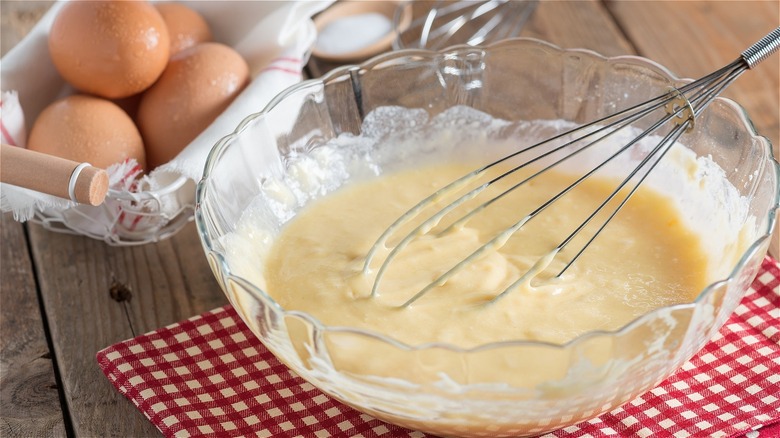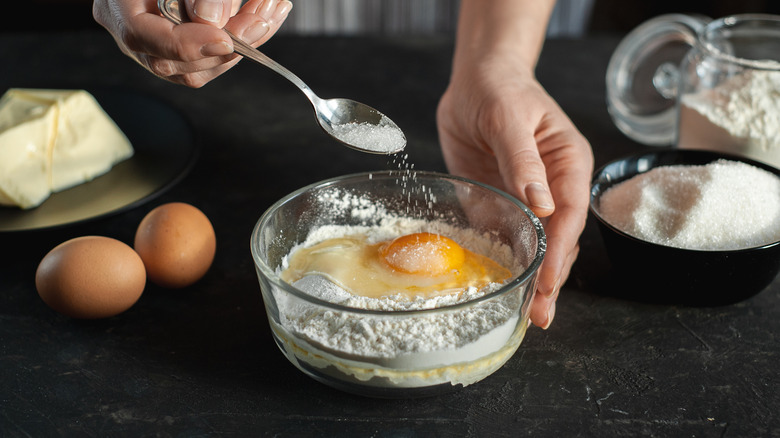Using Whole Eggs In Cake Batter Creates A Perfectly Balanced Texture
A lot goes into the making of a good cake — quality flour, butter, sugar, flavorings, a generous amount of love, and of course, eggs. The alchemy is fragile, too. One accidental scoop of flour, and the texture can be dry. Too few eggs, and the cake may turn out overly dense and its structural integrity is compromised. How or what part of the egg you incorporate into the cake also makes a big difference — in most cases, using the whole egg is the way to achieve the best texture.
Eggs are the binder that holds everything together in a cake and provides structure. Yet, there are often two types of cake bakers: the ones who use whole eggs and the ones who prefer the whites only. Some recipes like classic tiramisu and pots de crème call for egg yolks only, while strawberry shortcake and white velvet cake require only egg whites.
Although they come in the same package, egg whites and yolks have utterly different properties and roles in baking. Egg whites are used to make white or meringue-based cakes (such as angel food cake), and yield a fluffy and airy texture. They are also high in protein and used as leavening agents to give cakes a nice lift. While egg whites get the job done, using whole eggs in cake is a game changer due to their ability to add flavor, emulsification, and structure, all at once. Allow us to explain.
It's all about balance
Egg whites don't contain fat and are lower in calories compared to whole eggs. Egg yolks' fat content, on the other hand, make them more flavorful than egg whites. The yolks also act as emulsifiers to create a smooth cake batter and soften the gluten development in flour, which is key for making a soft (not dense) cake. If you're baking cakes without the egg yolk, you will have to use another ingredient like oil or milk to break up the gluten formation. Cakes made solely out of egg yolks have a richer flavor due to the fat, but the texture can be a little coarse due to a lack of moisture and protein from the egg whites.
Using whole eggs to bake cakes will establish a harmony of moisture, flavor, and texture as the yolk and the white work their magic on the batter. The yolk will ensure a uniform mixture and the white will help make the cake fluffy and provide structure. The result is a tender cake that isn't too dry or overly "eggy" and has a well-rounded flavor and color. Using whole eggs can also be less wasteful and cost effective, since you'll need fewer eggs for baking as compared to using only yolks or whites. So go ahead, whisk in whole eggs for your next batch of cake.

